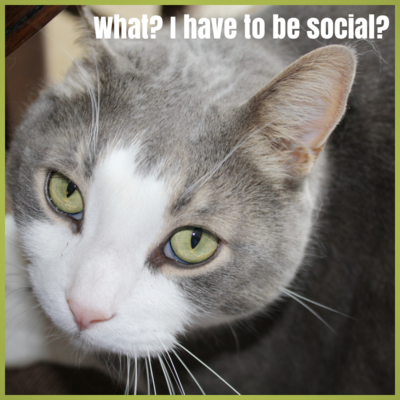 As business owners, you probably know there is a ton of value that can be gained by going to networking events. Going to your local chamber of commerce meetings, joining a small, but consistent weekly networking group, or going to conferences lets you meet all kinds of new people and learn new things.
As business owners, you probably know there is a ton of value that can be gained by going to networking events. Going to your local chamber of commerce meetings, joining a small, but consistent weekly networking group, or going to conferences lets you meet all kinds of new people and learn new things.
Social media is meant to be social (shocking, I know!) and to REALLY get the most value out of it you need to have conversations, you need to share information, and you need to get beyond your own channels. You need to do what you do at in-person networking events, online.
Join groups
Join some groups that have your target audience in them. There are groups of every type and size on Facebook, LinkedIn, and Google+. Where is your audience spending their time? Are they in groups talking about local issues; are they in groups talking about certain industries? Join some groups and be a helpful resource, be friendly, and then share interesting information from people in the groups with your audience.
Comment on what other people are saying
People love comments. I love comments (feel free to leave one here to make my day:-) ), and I bet you probably like getting comments too. Leaving comments on blog posts and social media updates from businesses run by your target audience or that your audience would follow, or by your target audience on their personal channels or responding to something someone said on Twitter is a great way to build relationships. The more you talk to someone, respond to things they say, and are friendly, the more they’ll pay attention to you and what you’re saying and want to share your message with their audience.
Share other people’s knowledge
People pay attention to those that are helping them spread their message. When you share content created by someone else you are doing two things at once. You’re sharing valuable content with your audience that you didn’t have to create (yay!) and you’re creating opportunity to be noticed by the person whose content you’re sharing (unless the content is from a really big site, then it may not be AS noticed). Share articles and posts (making sure to tag the original author) on all the different channels and see if the person who’s content you’re sharing doesn’t start noticing you more.
A free resource for you
If you’re wondering how to keep it all straight in your head, check out our newest free resource: our Daily Social Media Checklist. It will help keep you on track with what you should be doing on your own channels, as well as breaking out and spending time outside your own Facebook page and blog.



